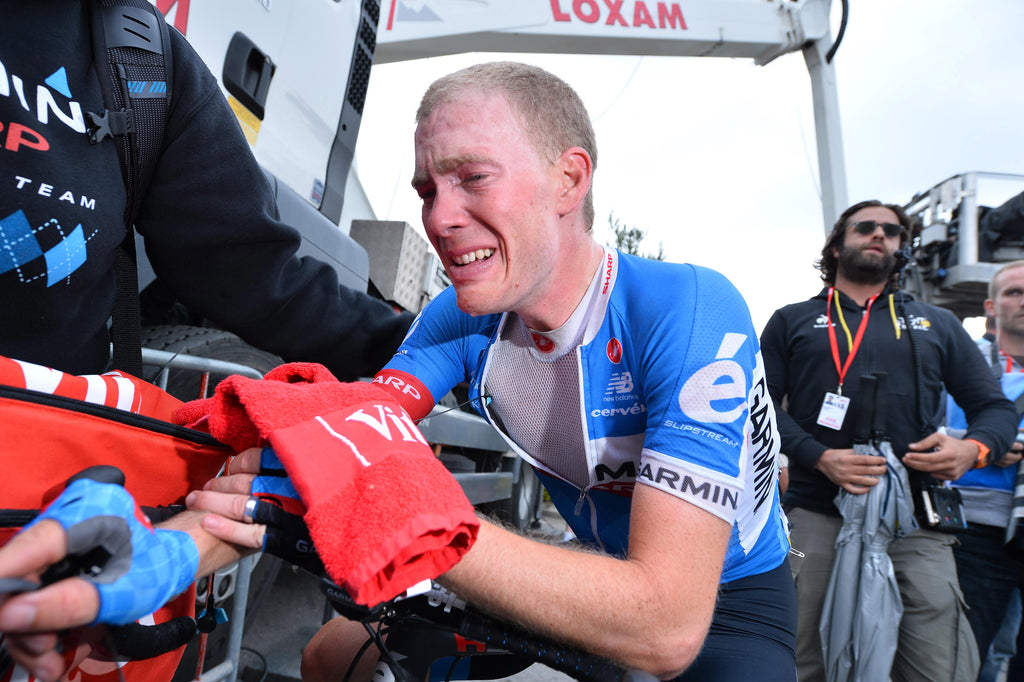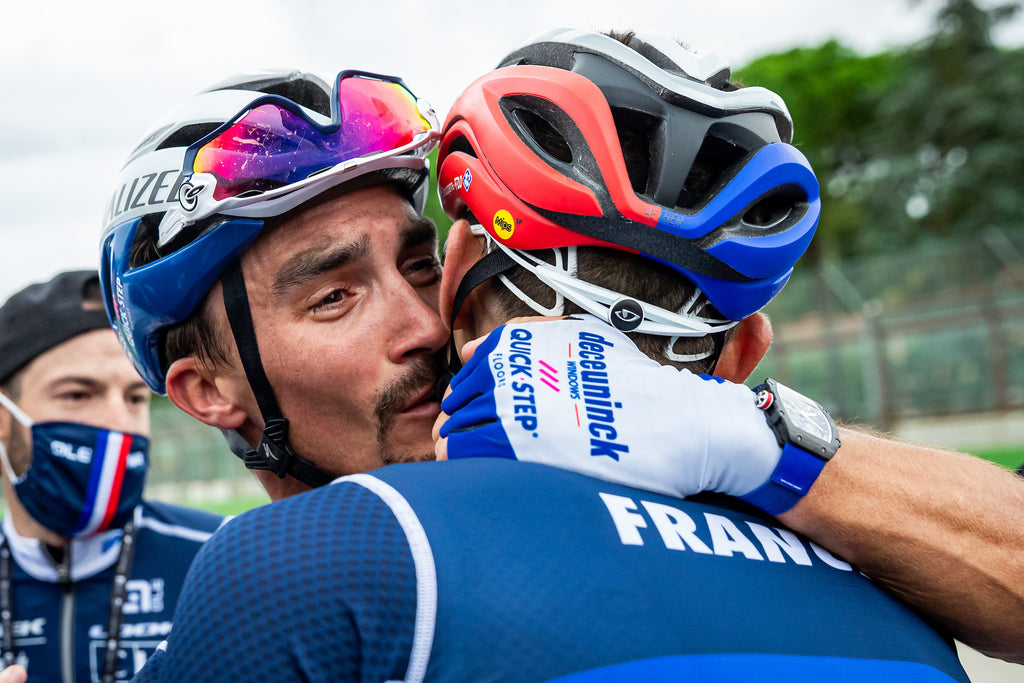Cast your mind back a few months to the heady days of the Tour de France. After seven years of hard graft and nearly dropping out of the pro game, sprinter Sam Bennett took his maiden Tour victory. He had to wait an anxious minute to find out whether he had pipped Caleb Ewan.
He cried. You would too. I nearly did just sat on my sofa watching.
But something else stood out, aside from his killer acceleration. During the post-race interview, Bennett said sorry, through the tears, “for being a crybaby”.
A month later, compatriot Dan Martin tweeted an apology for “letting the emotions get the better of him.” Had he reacted angrily to someone spilling his pint of Guinness? No, he was apologising for crying after winning a Vuelta a España stage, an expression of how much he missed his family. 
Sam Bennett's in the green jersey at this year's Tour (Photo credit: ASO / Pauline Ballet)
I’m starting to see a theme in men’s pro cycling here. Day in, day out, we see these bike riders suffering, all contracted muscles and grimacing faces. When they crash, they get up at lightning speed and react like the Black Knight in Monty Python. A flesh wound for them would be a hospital stay for most of us. We rarely see them showing any weakness - yet when they do, they seem to apologise for it.
Where does this apparent mix of stoicism and repressed emotion come from? It’s a mix of male social conditioning and sporting tradition. Teenagers come up through the ranks with old-school attitudes drilled into them from directeur sportifs who did formative rides of 250 kilometres in woollen jerseys, eating nails for breakfast.

Conformity rules in cycling: eat soggy pasta for dinner. Shut up, put up and hopefully get up to the top level. Rule 5: HTFU. With all that in mind, it’s no surprise that toxic masculinity (the idea of being tough all the time, that boys can’t express emotion openly) filters through into sport. And anyone who’s raced a bike knows that cycling is one of the toughest out there - so tough that it’s hard to let the guard down sometimes.
The funny thing about Martin and Bennett saying sorry was that their team sponsors should be thanking them. I’m certain their spontaneous, totally human reactions made people connect more to them as athletes (think of the loveable and lachrymose Julian Alaphilippe too) and notice the squad.  Photo credit: Alex Whitehead/SWpix.com
Photo credit: Alex Whitehead/SWpix.com
Emotion is one of the most powerful draws for following a sport or a sportsperson. It makes the win even more memorable.
In victory or defeat, shedding a tear is a normal reaction to your life’s work. Whether inside or on the outside, it matters: they should be emotional about it.
So, professional cyclists in 2021, you’re allowed to cry unapologetically. Get blubbing if you feel like it – maybe your professional team will even get an official tissue sponsor out of it.






























